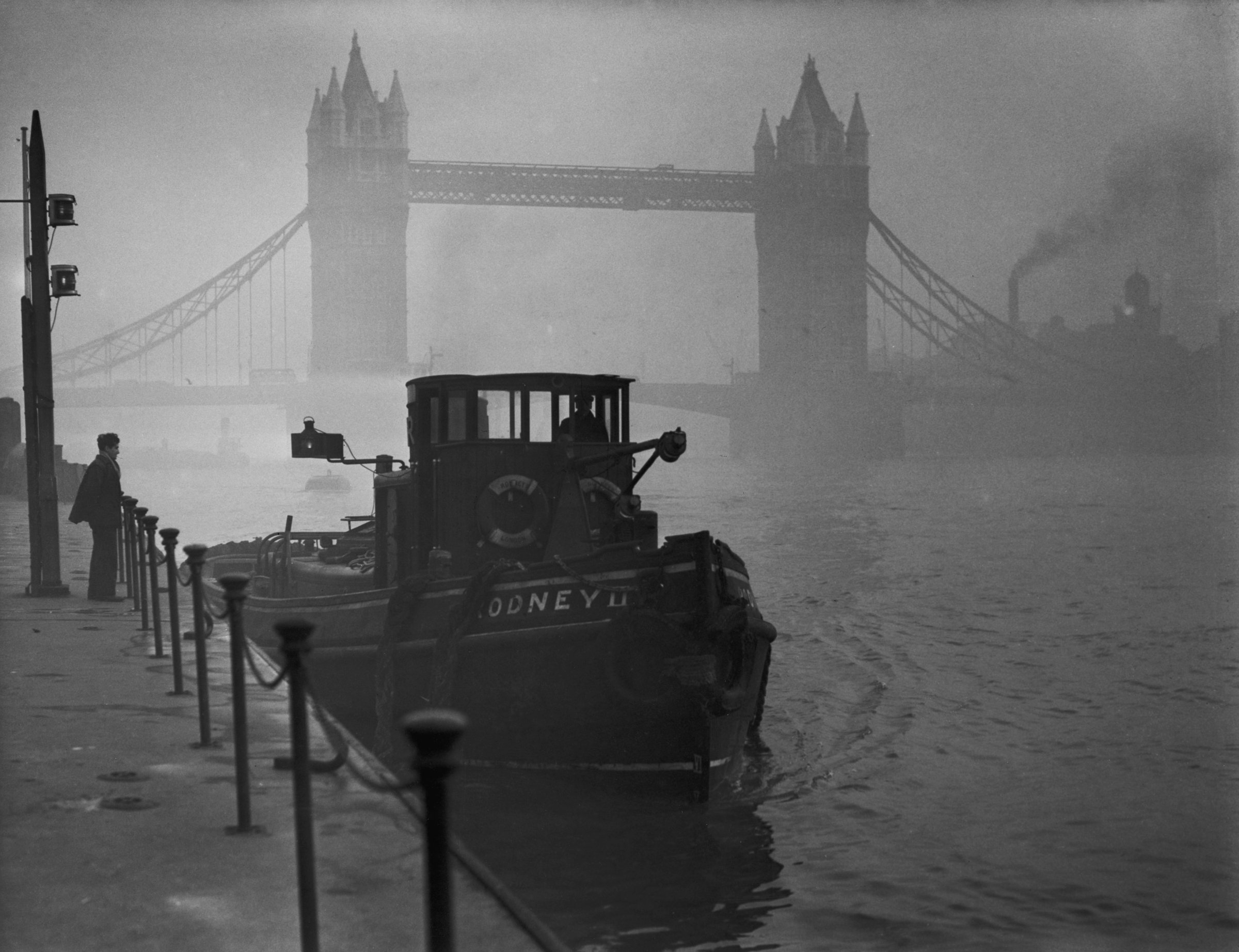
Viewers of Netflix’s new series The Crown, which focuses on the early life of Britain’s Queen Elizabeth II, may think it’s just a dramatic effect when London is plunged into sooty darkness in the fourth episode. But the Great Smog of 1952, also known as the Big Smoke and The Great Pea Soup, was a real — and terrible — event that claimed the lives of thousands of civilians.
Here’s what you need to know about it:
How did it start?
The Big Smoke developed in London on Dec. 5, 1952, triggered by a period of cold weather collecting airborne pollutants, mainly from the coal fires that were used to heat homes at the time, which formed a thick layer of smog over the city.
According to the United Kingdom’s public weather service, it was so thick you couldn’t see from one side of the street to the other. In one East London area, it was reported to be so thick people could not see their feet. Animals dropped dead at a high-profile livestock and farm machinery show, the BBC reported.
When did it end?
The layer of smog dispersed on Dec. 9 when the weather changed. By this time, around 4,000 people were known to have died as a result of it, many others were suffering from breathing problems and travel was disrupted for days, London’s Met Office weather service reported.
Following a government investigation, Parliament passed the Clean Air Act of 1956, which restricted the burning of coal in urban areas and encouraged homes to shift towards cleaner coals, electricity and gas for heating purposes.
What preventative measures did people take?
In 1953, the year after the Great Smog, a group of thousands of doctors urged Londoners to protect their lungs with sixpence worth of gauze folded into a six-layer mask and tied over the mouth and nose.
“The meshes of the mask, said the committee, would arrest most of the soot, while moisture from the breath, condensed on the mask, would prevent passage of some of the chemicals that cause lung trouble,” TIME reported at the time.
The British Medical Association backed up the committee, but the government’s Ministry of Health ignored the doctors’ suggestion. However, London shopkeepers were quick to seize on it and the end of two days, many London chemists had sold all their gauze.
What are the long-term effects?
A study published in the American Journal of Respiratory and Critical Care Medicine earlier this year revealed that the Great Smog may have affected the health of young children and unborn babies, resulting in thousands of additional cases of asthma, Health reports. Researchers looked at responses to a survey about ageing, and studied the health-related answers given by people who were exposed to the smog while their mothers were pregnant or during their childhood. The study found that the prevalence of childhood asthma was 20% higher among these respondents than among those who didn’t live in London at the time.
Also this year, another study concluded that the Great Smog could be linked to developmental problems affecting people to this day. It calculated that Londoners whose mothers were pregnant with them at the time of the weather event 60 years ago are 5% less likely than their peers to hold a degree. Men over 50 who were exposed to the pollution are also 4% less likely to be in any kind of employment.
“The levels of pollution observed during the Great London Smog were very high, much closer to levels observed during bad days in Beijing or Mumbai than in present day London,” the study, called Lifelong Damage From Foetal Exposure To Air Pollution: Evidence From The Great London Smog, said.
How did The Crown‘s producers create the fog scenes?
Productions typically use special effects to create fog in large spaces — but not The Crown, as Entertainment Weekly reports. “We had to get a great, huge warehouse and fill it full of fog to create the great pea soup of 1952,” director Stephen Daldry told the magazine. “We did it for real — CG didn’t look good enough for us.”
More Must-Reads from TIME
- Cybersecurity Experts Are Sounding the Alarm on DOGE
- Meet the 2025 Women of the Year
- The Harsh Truth About Disability Inclusion
- Why Do More Young Adults Have Cancer?
- Colman Domingo Leads With Radical Love
- How to Get Better at Doing Things Alone
- Michelle Zauner Stares Down the Darkness
Write to Kate Samuelson at kate.samuelson@time.com